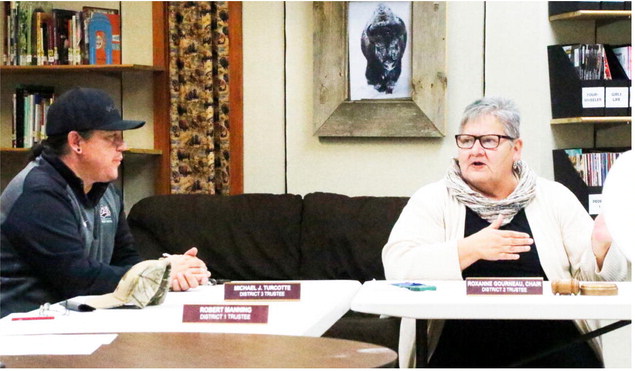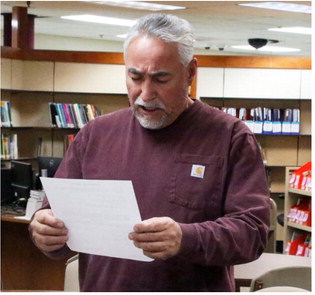Eastern Montana House Representative Race Light On Suspense
John Driscoll tells a story about campaigning as a Democrat for U.S. House in far eastern Montana, where he came across a woman who welcomed him like a desert island castaway.
“She said, ‘You’re a real live political person and you’re a Democrat?’ I go, ‘Yeah,’ and she hugged me.” Driscoll said. “They haven’t had much face-to-face contact out there. That’s what I’m seeing big-time.”
The subtext of the former state legislator and Public Service Commissioner’s observation is that Montana’s second U.S. House District, on the general ballot for the second time since its creation, is solidly Republican, especially in rural areas, which punch above their weight in the GOP electorate.
The 38 rural counties in the district produced 47,432 votes in the nine-candidate Republican U.S. House primary in June, accounting for 47% of the eastern district GOP results. Three urban counties, Cascade, Lewis and Clark, and Yellowstone, accounted for the rest. Troy Downing, Montana’s state auditor, won the nomination and is expected to win the general election by a wide margin.
The four-candidate Democratic primary that Driscoll won, on the other hand, drew 12,803 voters in those same 38 rural counties. Including Yellowstone, Lewis and Clark and Cascade counties, the Democrats’ eastern district primary drew 40,290 votes to the Republicans’ 100,411. Democrats argue that primaries aren’t prologue to general election results, though in five of the last eight general election races for U.S. House, the average Republican margin of victory in eastern district counties is greater than 20%.
Incumbent Rep. Matt Rosendale, who isn’t seeking reelection, won 56% of the eastern district vote in 2022, while Democrat Penny Ronning finished with 20% of the vote behind independent Gary Buchanan, who captured 21% of the vote as a self-described moderate alternative for centrist Dems and Republicans disenfranchised by MAGA politics.
There is a nominally independent candidate in this year’s election as well. Reilly Neill, of Livingston, has mounted a write-in campaign.
The base salary for a U.S. representative is $174,000. Both major-party candidates live in Helena, which is part of the district. Downing has been Montana’s securities commissioner as state auditor since 2020.
A retired Army colonel, Driscoll is a former Joint Education Officer of the J-7 Directorate of Joint Force Development supporting the Chairman Joint Chiefs of Staff. Driscoll is easily the most credentialed veteran to seek election in Montana in decades, though he almost never flaunts his military cred. What he’s known for is being the Dollar General of Montana politics. In several of the eight races he’s run for a seat in the U.S. Senate or House of Representatives since 1978, Driscoll spent so little that he didn’t reach the $5,000 federal threshold for required campaign finance reporting. He won the 2008 Democratic nomination for Montana’s at-large House seat by defeating two primary opponents who each spent more than $200,000, which even 16 years ago was scarcely enough for a Potemkin campaign.
Downing isn’t resting on his primary win, or the eastern district’s conservative DNA.
“I’m not taking that for granted. I’m still talking, showing up in the community, showing up at events talking to Montanans,” Downing to Montana Free Press. “But also, I’m just trying to make sure that I’m not just running through the tape, that I’m going to be effective on day one. A lot of that has to do with helping others, it has to do with building relationships.
“When I show up in January, I want to make sure that people know who I am and what Montana wants. I don’t want to be in the back of the room, a backbencher.”
Eastern district voters are identifying illegal crossings at the U.S.-Mexico border as a top concern, Downing said.
“Kind of the top of the list are things that everybody’s talking about in the national news. People are concerned about crime. They largely attribute that to the southern border, drugs, fentanyl, basically local law enforcement being run ragged because they really don’t have the boots on the street to deal with the influx we’re seeing,” Downing said.
“I think we need to go back to the Trump policy of you can’t just come across, disappear into the country,” Downing said. He visited the U.S.-Mexico border earlier this year. “One of the other things that I thought was interesting is blowing in the wind are all these fliers. You know, I picked one up in multiple languages on how to declare or request asylum in the United States, instructions on what to say. I mean, it’s just a problem.”
Driscoll said his conversations with voters in the eastern part of the state are unique. He is inclined to get the lay of the land before introducing himself.
“I’ll pull into town, park the car, and walk around town. If I feel the person I’m about to meet won’t be bothered by me introducing myself, then I do. I meet a lot of people that way,” Driscoll said. “I’ve also been kicked out of a guy’s shop because he hates Democrats. I wear a hat that says, ‘I’m a Democrat’ and that lights people up, or I have been called a baby killer. I’ve been called a communist, because of the hat.” Eventually, he said, word spreads to the other end of town that Driscoll is coming, and people get a little more welcoming.
The energy transition is a big eastern district priority identified by both candidates. In the first 10 months of this year, the district has seen commercial-scale mining cease at the Absaloka mine in Hardin, a primary source of jobs and royalties for the Crow Tribe. Owners of the Colstrip power plant are grappling with tightening regulations on carbon emissions, mercury and hazardous air pollutants, restrictions that could close or shorten the life of the power plant. Meanwhile, southeast Montana is preparing for a first-of-its-kind transmission line project connecting the nation’s eastern and western grids.
“I went down to Colstrip, and I got a feel for what’s going on down there. I mean, that plant’s going to probably keep running, but it probably could also make a debut on the Antique Roadshow,” Driscoll said. As a member of the Montana Public Service Commission in the 1980s, Driscoll took part in the decision making to determine how much of the power plant would go into the rates of customers of the Montana Power Company, which sold its assets roughly 20 years later.
Driscoll is a fan of small modular nuclear reactors, both as power plants and engines for train locomo- House
He thinks nuclear power could find a home in Colstrip. Small modular reactors have attracted some interest in Montana while at the time losing support in neighboring Idaho as the cost of power proved uneconomical.
Downing advocates for keeping fossil fuels, including coal, in play while creating new energy sources, including for freight.
“We need to continue to support reliable and affordable energy, not to say that we don’t continue to innovate and look for, you know, other things, but let’s also make sure that we are being honest about the language that we use,” Downing said.
Both candidates talked about the need to recognize the environmental costs of battery storage and renewable generation sources that don’t burn fuel but do have impacts related to manufacturing.
Downing identified the importance of water to agriculture in eastern Montana. He’s one of five members of the Montana Land Board, which makes management decisions about stateowned land including leases for grazing, recreational cabins and fossil fuels.
“On agriculture, food security is national security, and it concerns me that we continue to be able to feed ourselves as a nation,” Downing said. “I mean, this is not just the economy in Montana. This
is a nationwide issue. If we start to see production agriculture dwindle away, and we don’t continue to support our farmers, ranchers, we’ll get to the point where we’re not feeding ourselves.”
Downing, like Driscoll, is a military veteran. He served in the Air Force and Air National Guard from 2001 through 2009. He was twice deployed to Afghanistan. Both men draw on their military experience to form positions on the current wars in Israel and Ukraine. Standing with Israel is part of Downing’s message. Driscoll is concerned about Russia’s invasion of Ukraine and the threats it poses to the United States’ allies in Europe.

